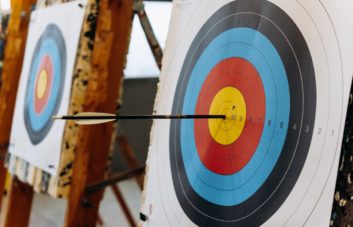All in a squeeze
Consider the following example. When we squeeze a lemon, we always get lemon juice and when we squeeze an orange, we always get orange juice. There’s never been an example when someone squeezed a lemon and got orange juice or squeezed an orange and got lemon juice. The juice that comes out of it is what is within the fruit. This is true irrespective of time, location, circumstance and the person who squeezes. Like a fruit, we are a fruit of our upbringing and our faith. We reveal who we are and what lies within us from how we react when external circumstances and/or people apply pressure upon us.
When people squeeze us by being cruel or saying things that are hurtful and if good morals, love, mercy, forgiveness, forbearance, clemency and kindness come out, it’s because goodness and beauty is what is inside. Being able to respond with goodness in the face of adversity is an indication of a strong resolve, a well established inner faith and adornment of nobility. And there was no one who demonstrated this high character and magnanimity better than the Messenger of Allah (ﷺ).
“And indeed, you are on an exalted moral character.” [Al-Qalam: 68: 4]
However, if the pressure results in bitterness, speaking ill, hatred, rage and revenge to come forth, then this is an indication that we have a poor character. It is a sign that faith has not fully established in the heart nor have we attained full cognisance of Allah’s perfect watch over us. So let each of us look towards our own character and how we deal with people – what does our conduct say about what lies within?
Life’s gym
If we are lacking something, we cannot give it to someone else. If we were never shown love, it’s unlikely we can show it to others in a healthy way. If we do not have inner peace within our own hearts, we are unlikely to bring about peace in others.
“We cannot give to others what we do not have.”
Just like a person goes to the gym to build the body and fitness he wants. We can consider our social setting as life’s gym wherein there are various workout stations. Each station has specific function in developing a certain area of the body. Similarly, we can use all our circumstances and social conditions to build and develop our character. The warm up of our program is the daily worship of Allah, it develops our connection with Allah and energises our soul. We are now ready to take on the various targeted stations to shape our character. Some circumstances develop our patience to face difficulty and to overcome future adversities, some will develop our sense of generosity to be able to spend for what we love, some will develop our courage to stand up to enjoin the good and forbid the wrong, some events will try our faith and see if we remain steadfast on the promises of Allah, some will cultivate a sense of trust in Allah when all support seems to be lost, some events will cause us to fall and learn wisdom from our failure and so on….
Our diet has huge impact on the body and the effectiveness of the workouts. Similarly the diet of Qur’an has a huge impact on the fragrance and fruit of our character. The Messenger of Allah (ﷺ) said:
“The example of a believer who recites the Qur’an is that of a citrus fruit (utrujja) which is good in taste and good in smell. And the believer who does not recite the Qur’an is like a date which has a good taste but no smell. And the example of an impious person who recites the Qur’an is that of Ar-Rihana (an aromatic plant) which smells good but is bitter in taste. And the example of an impious person who does not recite the Qur’an is that of a colocynth which is bitter in taste and has no smell.” [Bukhari]
Also, in the gym, we have a personal trainer to show us how to navigate the workstations correctly to maximise benefit and minimise harm, we too have a guide to help us navigate life.
“Indeed in the Messenger of Allah you have an excellent example to follow.” [Al-Ahzab: 33: 21]
A guide to perfection
The Messenger of Allah (ﷺ) had two primary functions; (1) to teach people about Allah and (2) reform people’s character: he (ﷺ) said:
“Verily, I have been sent as a teacher.” [Ibn Majah]
“Verily, I was sent to perfect good character.” [Musnad Ahmad]
“Do not let yourselves be ‘yes-men’, saying: ‘If the people are good then we will be good, and if they are wrong then we will be wrong.’Rather, make up your own minds, if the people are good then you are good, and if they are evil, then do not behave unjustly.” [Tirmidhi]
Be good to people who do good to you, be good to people even those who do not do good to you. Be good to people regardless. Doing good in itself is a reward, for it brings happiness and pleasure to the doer of good, it is appreciated by the recipient, if not, then rewarded by Allah in this world and the life ever after. Allah has said:
“Is there any reward for good other than good?” [Ar-Rahman: 55:60]
Imam Abdul Qadir Jilani advised:
“If you are wronged, do not do wrong yourself [by holding a grudge].
If you are praised, do not be happy.
If you are criticised, do not be saddened.
If you are accused of lying, do not get angry.
If you are entrusted with something, do not show betrayal.” [i]
But if you cannot be good to people for whatever reason, then refrain from causing them harm, Yahya ibn Mu’adh said:
“If you cannot benefit the people, then do not harm them.
If you cannot please them, then do not abuse them.
If you cannot make them happy, then do not make them sorrowful.
And if you cannot praise them, then do not belittle them.” [ii]
Abdullah bin Al-Mubarak explained good character:
“It is a smiling face, doing one’s best in good, and refraining from harm.” [Tirmidhi]
Practice makes perfect
The Messenger of Allah (ﷺ) said regarding the rank of people of good character:
“By his good character a believer will attain the degree of one who prays during the night and fasts during the day.” [Abu Dawud]
“Abu Darda stood up in the night to pray. He was weeping and said,:’O Allah! You made my physical form good, so make my character good!’ until the morning. I said: ‘Abu Darda, your only supplication for the entire night was for good character!’ He replied: Umm Darda, the Muslim makes his character good with the result that his good character takes him into Paradise. He makes his character bad with the result that his bad character takes him into the Fire. The Muslim is forgiven while he is asleep.’ I asked: ‘Abu Darda, how can he be forgiven while he is asleep?’ He replied: ‘His brother arises in the night and performs the night prayers and he makes supplication to Allah Almighty (for the Muslims in general and in particular singling out those who are good to him) and his supplication is answered. He makes supplication for Muslim brother and his request is answered.'” [Adab Al-Mufrad]
The practice of goodness is to do good without expecting anything in return. We should not be like the one who does good when others do good, and when others do bad he refrain from doing good. Such people are people who return favours. It’s easy to be kind and compassionate to those who are kind to us, but being kind and good to people who ‘least deserve’ our kindness is real kindness and compassion.
When we practice being good to people on an ongoing basis, in time, goodness will be part of our character.
“Always do good to others,
perhaps, Allah is showing good to a person through you,
or Allah is making you worthy of doing good
and thereby goodness becomes your nature.”
The Messenger of Allah (ﷺ) said:
“The best among you are the best in character (having good manners).” [Bukhari]
Let the people in our life help us learn to develop and perfect our character. Sometimes our greatest teachers are those who are our foes. It’s being able to deal with them in the best way despite our grievance and tribulation is what will in time develop, beautify and ripen the sweetness of our character. So I ask you:
“Are you a dispenser of orange juice or lemon?”
[i] Jila’Al-khatir (Purification of the Mind) – Abdul Qadir Al-Jilani – page 101
[ii] Cited in Book of Assistance – Imam Al-Haddad – page 103




JazakAllah khairun Abu. Beautifully explained the character of a good person and how it relates to the smell of Utrujja.